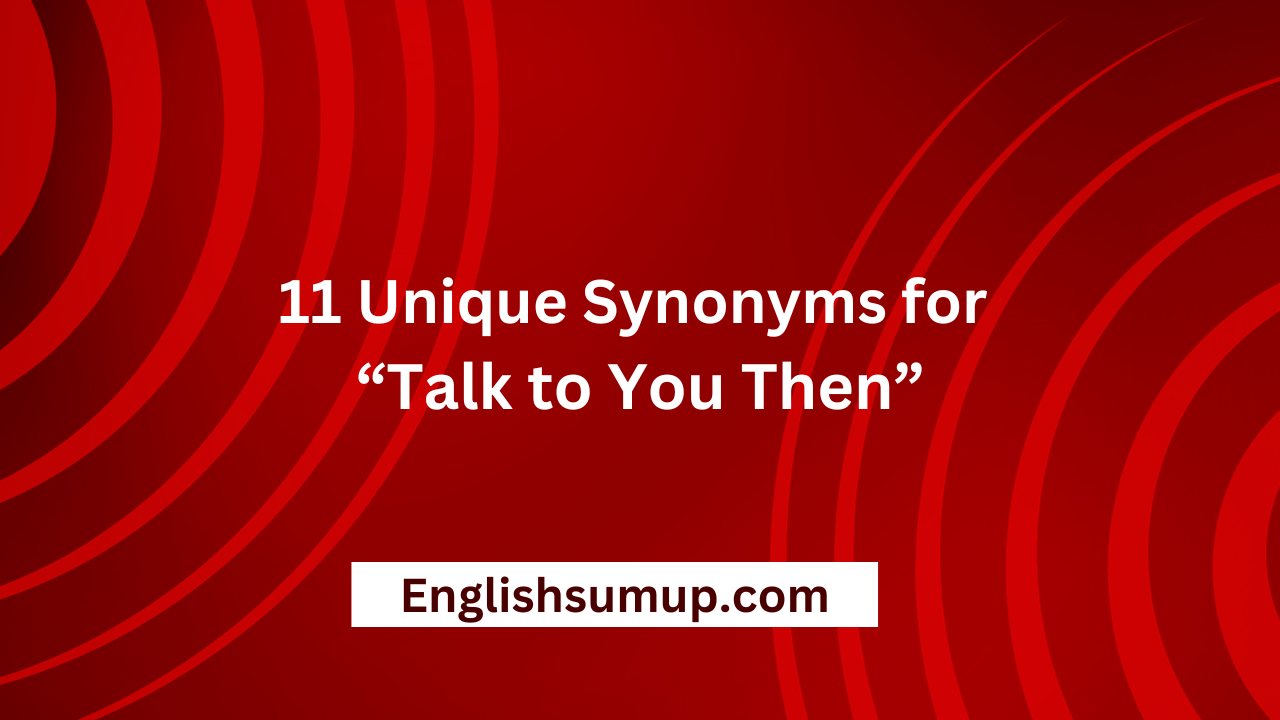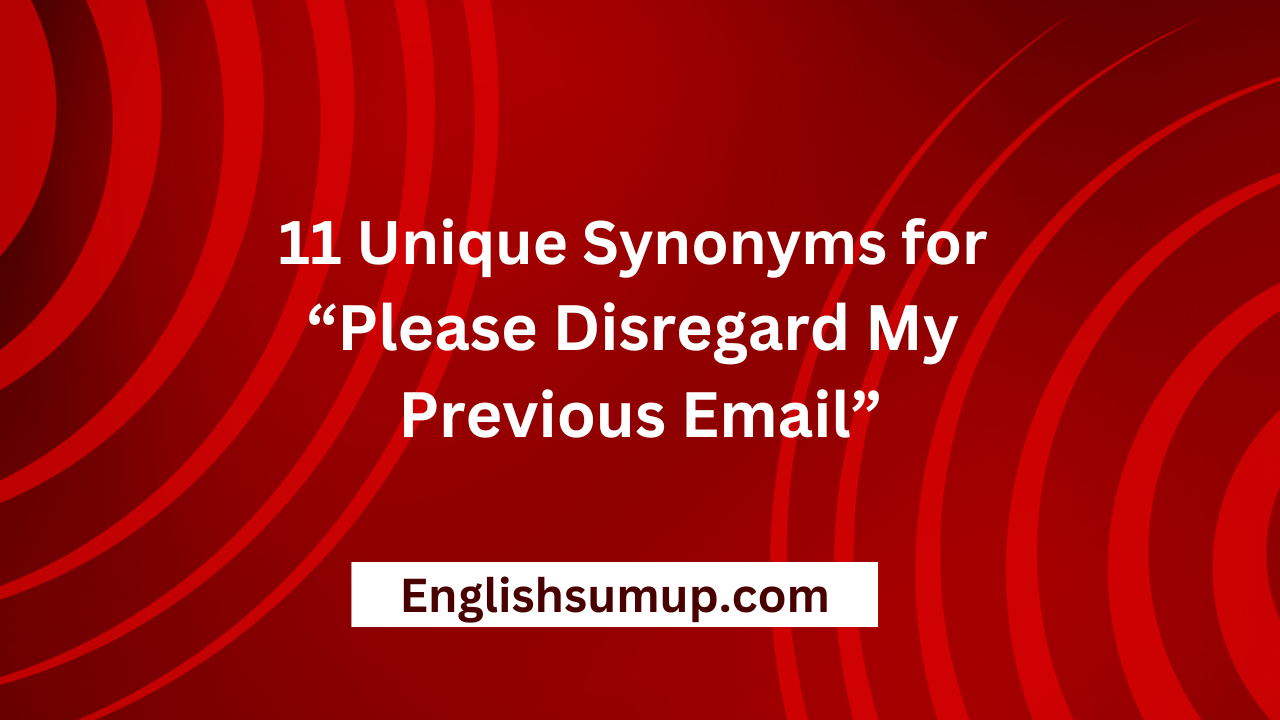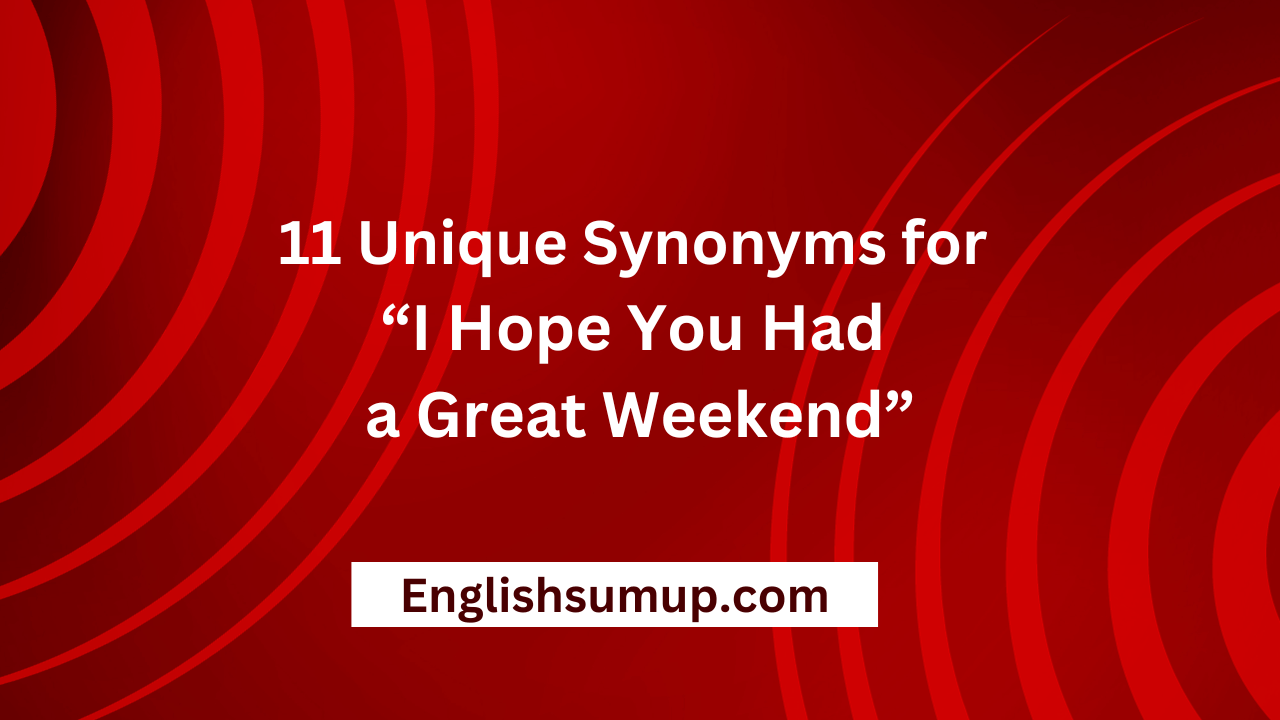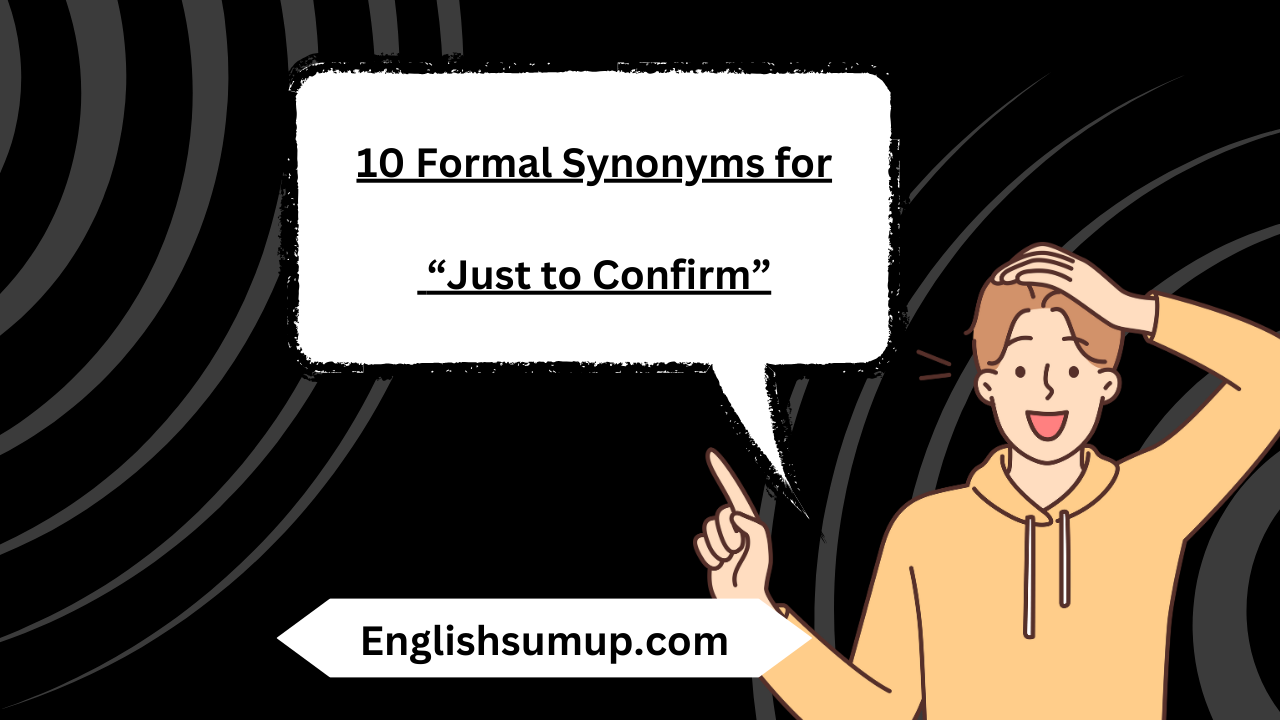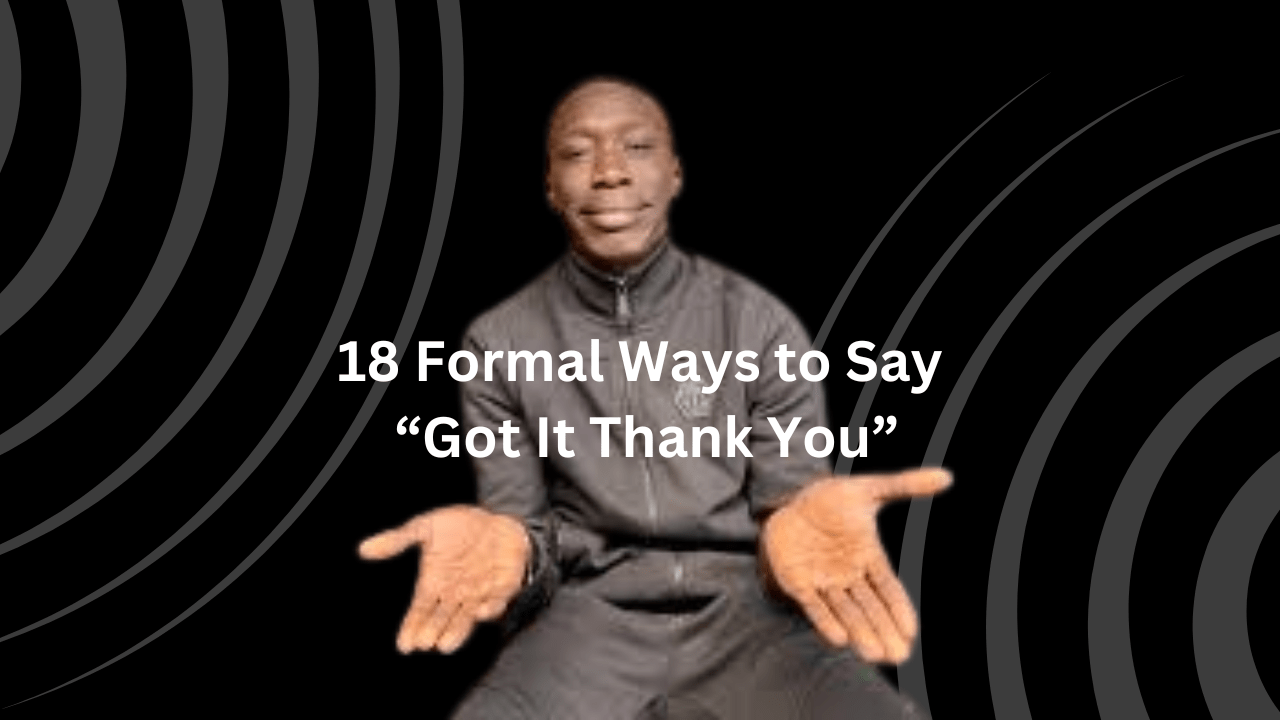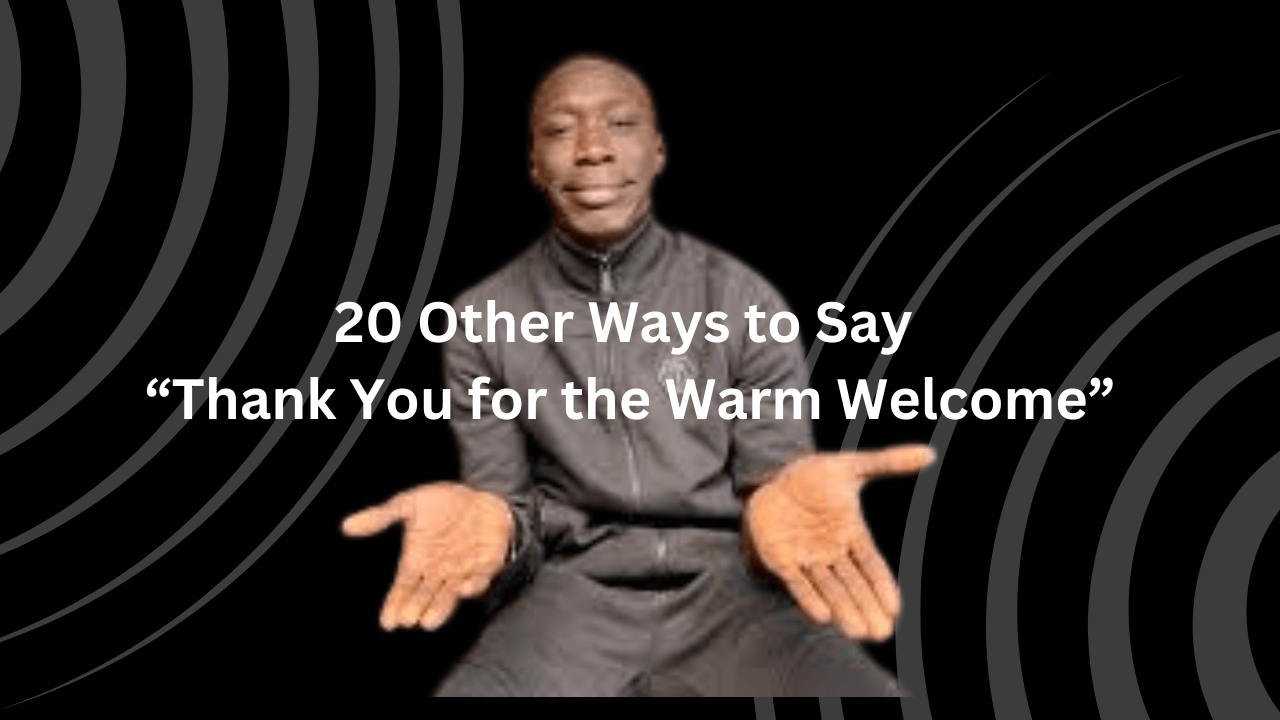When orchestrating a scheduled meeting and anticipating imminent communication, you might consider incorporating the phrase ‘talk to you then’ in your email.
However, the appropriateness of this expression in formal writing may be questioned.
Fortunately, this article is dedicated to addressing this inquiry. Additionally, we will furnish alternative expressions to infuse variety and sophistication into your written correspondence.
Read this post also: 11 Synonyms for “Please Disregard My Previous Email”
Is It Formal to Say “Talk to You Then”?
In professional communication, employing the phrase ‘talk to you then’ exudes formality and is particularly fitting in the context of arranging meetings.
This expression is commonly deployed after successfully coordinating a meeting, be it with a client or a group of colleagues. Its purpose is to signal your intent to engage in further discussion during the scheduled meeting.
Allow me to illustrate with an example:
‘I’m glad we could sort this meeting time out.
Talk to you then,
Mr. Bridges’
Pros:
Politeness and Effective Closure: This phrase serves as a polite and suitable conclusion to professional emails, especially after the successful arrangement of a meeting.
Post-Meeting Follow-Up: Its use conveys the intention to reconnect and continue discussions after the scheduled meeting.
Cons:
Generic Nature: Despite its effectiveness, ‘talk to you then’ can be perceived as somewhat generic.
Limited Enthusiasm: The phrase may not express a particularly enthusiastic tone about the upcoming meeting.
While ‘talk to you then’ remains a viable option for concluding emails, it’s beneficial to diversify your repertoire. Having a selection of alternatives at your disposal not only keeps your communication interesting but also allows for a nuanced expression of your sentiments. As we explore professional synonyms for this phrase, accompanying business email examples will provide further insights into their usage in various contexts.
What to Say Instead of “Talk to You Then”
- Until our discussion:
- Anticipating our dialogue:
- Looking forward to our interaction:
- Awaiting our upcoming conversation:
- Eager to engage further:
- Our discourse continues soon:
- More to discuss in our next meeting:
- Further dialogue awaits us:
- We’ll delve deeper in our next interaction:
- Our conversation will resume shortly:
- Looking forward to our upcoming meeting of minds:
Until our discussion:

This phrase, “Until our discussion,” subtly suggests a continued, ongoing engagement. It implies a commitment to return to the conversation at a later time, fostering a sense of continuity in the dialogue. Isn’t this better way to say Talk to You Then.
Sub: Expression of Appreciation and Anticipation
Dear John,
I trust this message finds you well. I wanted to express my gratitude for our recent discussion and convey that I am looking forward to the continuation of our dialogue. Until our discussion resumes, I appreciate your insights and value our ongoing collaboration.
Best regards,
Devon
Anticipating our dialogue:

Anticipating our dialogue” conveys a heightened sense of expectation and eagerness for the impending conversation.
It adds a layer of formality, indicating a thoughtful and considerate approach to the upcoming interaction. Isn’t this better way to say Talk to You Then.
Sub: Eager Anticipation for Our Upcoming Dialogue
Dear John,
I hope this email finds you in good spirits. I wanted to reach out and express my eagerness for our upcoming dialogue. Your perspectives are always insightful, and I am anticipating a fruitful exchange of ideas. I look forward to our conversation.
Warm regards,
Devon
Looking forward to our interaction:

This expression, “Looking forward to our interaction,” combines professionalism with warmth.
It communicates a positive expectation for the engagement, creating a friendly and approachable atmosphere. Isn’t this better way to say Talk to You Then.
Sub: Enthusiastically Looking Forward to Our Interaction
Dear John,
Trust this message finds you well. I am reaching out to express my enthusiasm for our upcoming interaction. Your insights and perspectives are always enlightening, and I look forward to the collaborative engagement we are about to embark upon.
Warm regards,
Devon
Awaiting our upcoming conversation:

Awaiting our upcoming conversation” articulates a sense of readiness and preparedness for the scheduled discussion.
It conveys a formal tone, indicating a commitment to the forthcoming exchange of ideas. Isn’t this better way to say Talk to You Then.
Sub: Readiness for Our Scheduled Conversation
Dear John,
I trust you are doing well. I wanted to convey my readiness for our upcoming conversation. I have prepared thoroughly and look forward to a productive discussion. Awaiting our upcoming conversation with great anticipation.
Best regards,
Devon
Eager to engage further:

The phrase “Eager to engage further” expresses not only anticipation but also enthusiasm for extended dialogue.
It conveys a desire to delve deeper into the conversation, emphasizing an active and participatory stance. Isn’t this better way to say Talk to You Then.
Sub: Expressing Eagerness to Engage Further
Dear John,
I trust this email finds you well. I am writing to express my eagerness to engage further in our ongoing conversation. Your insights have been invaluable, and I am keen to delve deeper into the topics we’ve been discussing. Looking forward to our continued collaboration.
Sincerely,
Devon
Our discourse continues soon:

Our discourse continues soon” suggests an ongoing and evolving conversation. This phrase communicates a sense of progression,
reinforcing the idea that the dialogue is not a one-time occurrence but rather a continual exchange of thoughts. Isn’t this better way to say Talk to You Then.
Sub: Acknowledging Ongoing Discourse
Dear John,
I hope this email finds you in good health. I wanted to acknowledge our ongoing discourse and express my appreciation for the insightful exchange. Our discourse continues soon, and I eagerly anticipate further discussions.
Kind regards,
Devon
More to discuss in our next meeting:

This expression, “More to discuss in our next meeting,” explicitly acknowledges that there are additional topics or details to cover in the upcoming meeting.
It conveys a sense of foresight and planning for a comprehensive discussion. Isn’t this better way to say Talk to You Then.
Sub: Acknowledging Upcoming Topics for Discussion
Dear John,
I trust this email finds you well. I wanted to acknowledge our upcoming meeting and convey that there is more to discuss. I appreciate your insights, and I look forward to delving into additional topics during our next meeting.
Best wishes,
Devon
Further dialogue awaits us:

Further dialogue awaits us” emphasizes the idea that the conversation is poised to extend beyond its current state.
This phrase conveys a sense of anticipation and openness to continued communication. Isn’t this better way to say Talk to You Then.
Sub: Anticipating Further Dialogue
Dear John,
I trust this message finds you well. I wanted to express that further dialogue awaits us. Your perspectives are highly valued, and I look forward to our continued conversations on add your topic here.
Warm regards,
Devon
We’ll delve deeper in our next interaction:

We’ll delve deeper in our next interaction” indicates a commitment to exploring topics more profoundly in the subsequent conversation.
This expression conveys a willingness to engage in a more in-depth discussion. Isn’t this better way to say Talk to You Then.
Sub: Commitment to Delve Deeper in Our Next Interaction
Dear John,
I hope this email finds you in good spirits. I wanted to express my commitment to delve deeper into our discussions in our next interaction. Your insights are crucial, and I look forward to exploring additional facets of our ongoing conversation.
Best regards,
Devon
Our conversation will resume shortly:

Our conversation will resume shortly” communicates a sense of continuity, assuring the recipient that the dialogue is temporarily paused and will promptly resume.
It conveys a considerate acknowledgment of the temporary break. Isn’t this better way to say Talk to You Then.
Sub: Notification of Temporary Pause and Resumption
Dear John,
I trust this message finds you well. I wanted to inform you that our conversation will resume shortly. Your perspectives are valued, and I look forward to picking up where we left off in our ongoing dialogue.
Kind regards,
Devon
Looking forward to our upcoming meeting of minds:

Looking forward to our upcoming meeting of minds” carries a poetic touch, suggesting an intellectual collaboration.
It conveys a sense of excitement and shared intellectual engagement, emphasizing the meeting as a convergence of ideas. Isn’t this better way to say Talk to You Then.
Sub:Excitement for Our Upcoming Meeting of Minds
Dear John,
I hope this message finds you in good health. I wanted to express my genuine excitement for our upcoming meeting of minds. Your perspectives contribute greatly to our discussions, and I look forward to the intellectual exchange that awaits us.
Sincerely,
Devon
Conclusion:
In the realm of professional communication, the choice of language plays a pivotal role in fostering meaningful interactions.
The array of expressions provided, from “Until our discussion” to “Looking forward to our upcoming meeting of minds,” encapsulates a spectrum of nuanced sentiments, each tailored for specific contexts.
As we conclude, it becomes evident that employing diverse and thoughtfully crafted phrases enriches the texture of communication, allowing individuals to convey not only readiness but also a genuine eagerness for continued collaboration.
By integrating these expressions into your repertoire, you enhance your ability to articulate anticipation, engagement, and commitment in a manner that aligns with the formality and warmth required in professional settings.
The adaptability of these phrases ensures that whether it’s a scheduled meeting, ongoing dialogue, or future discourse, you can convey your sentiments with clarity and professionalism.
As you navigate the intricate landscape of professional communication, consider the intricacies of each phrase and deploy them judiciously to build and maintain robust professional relationships.
The art lies in the thoughtful selection of expressions that resonate with the context and contribute to the positive trajectory of ongoing discussions.




